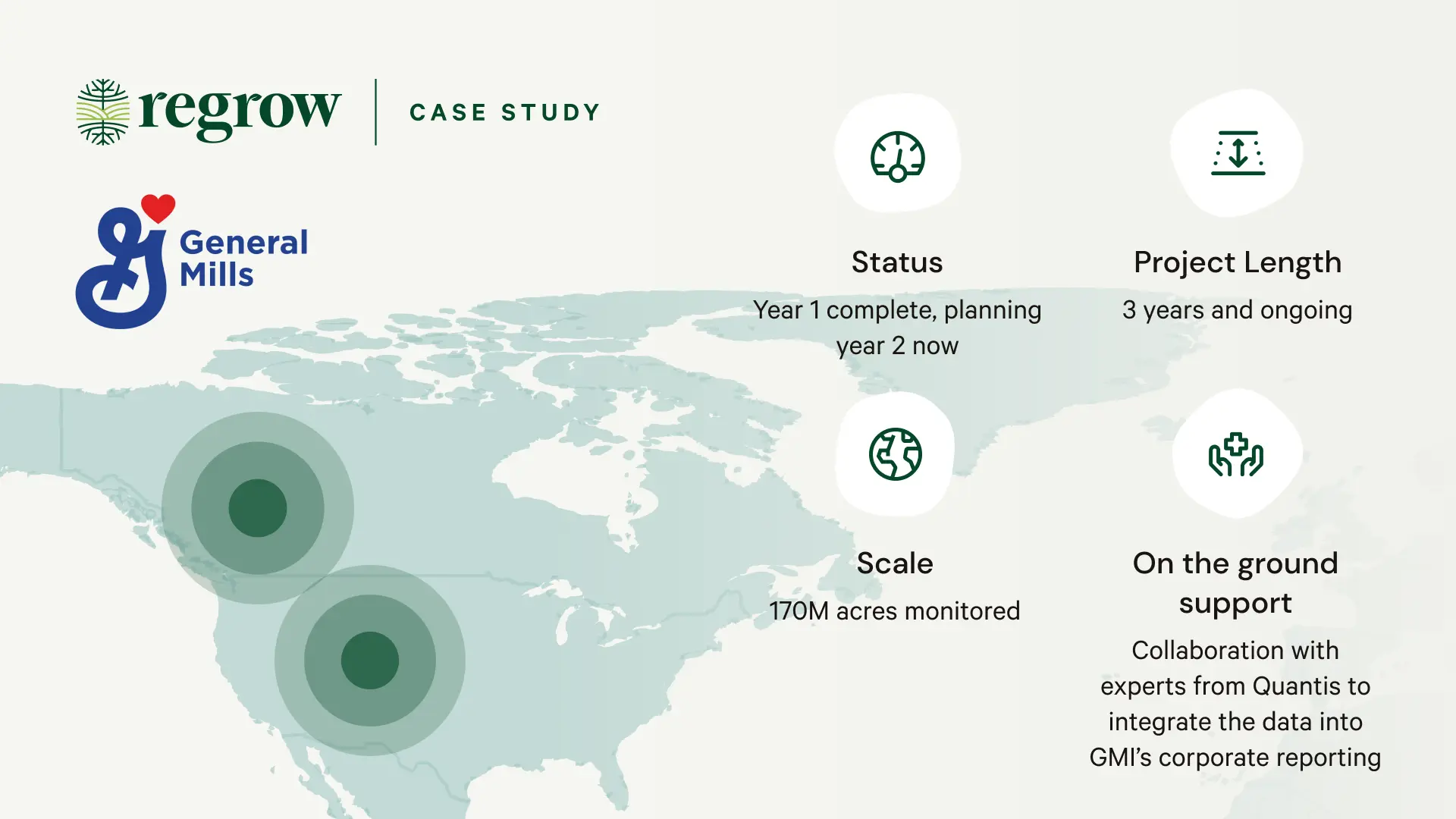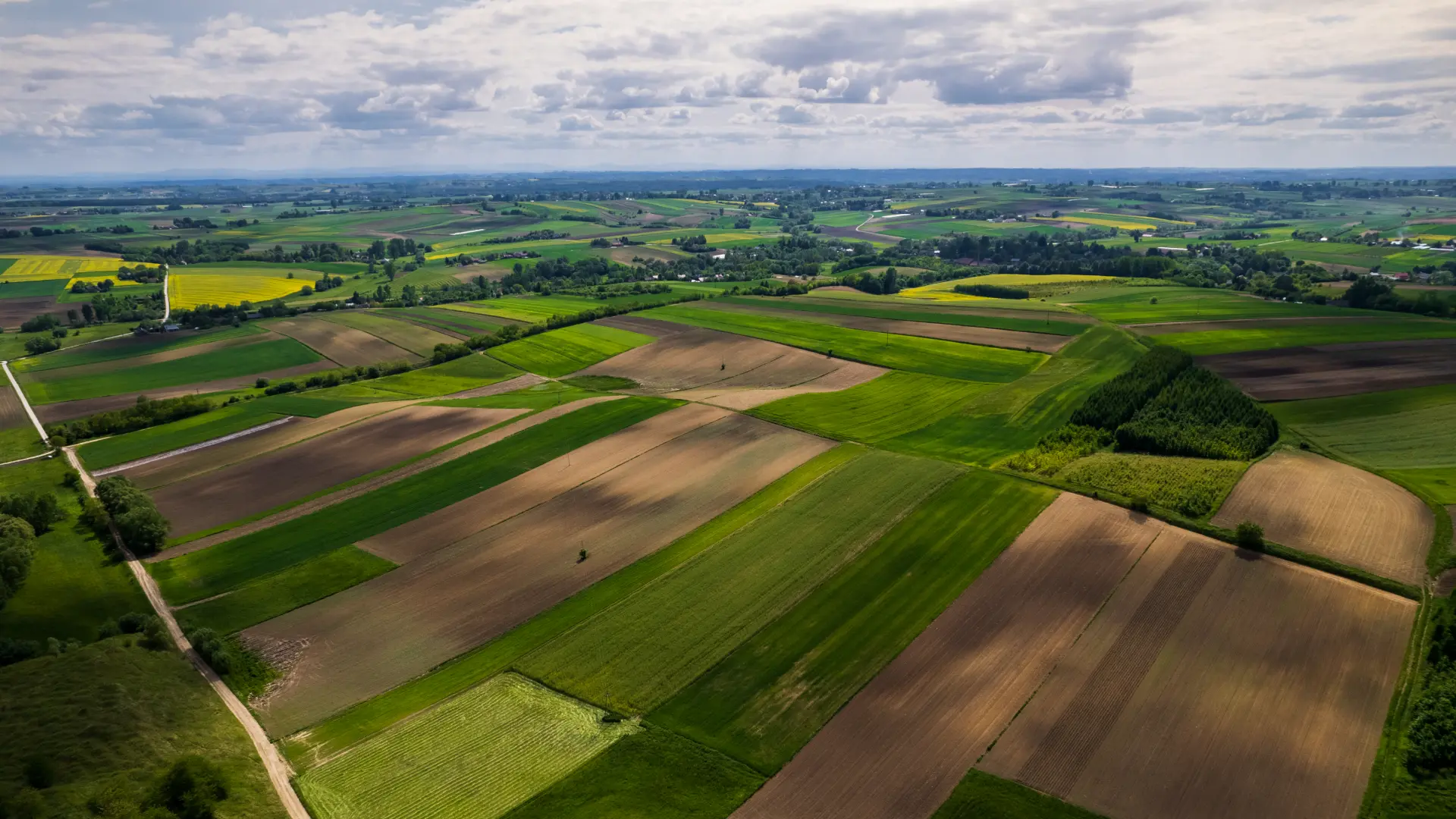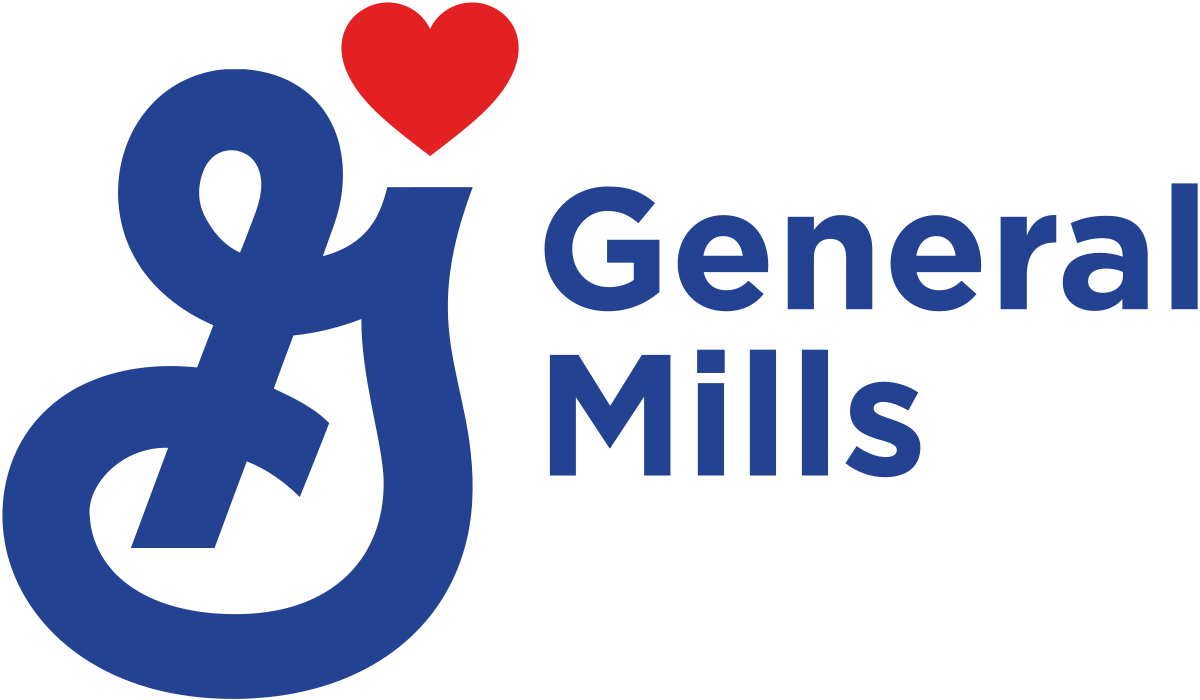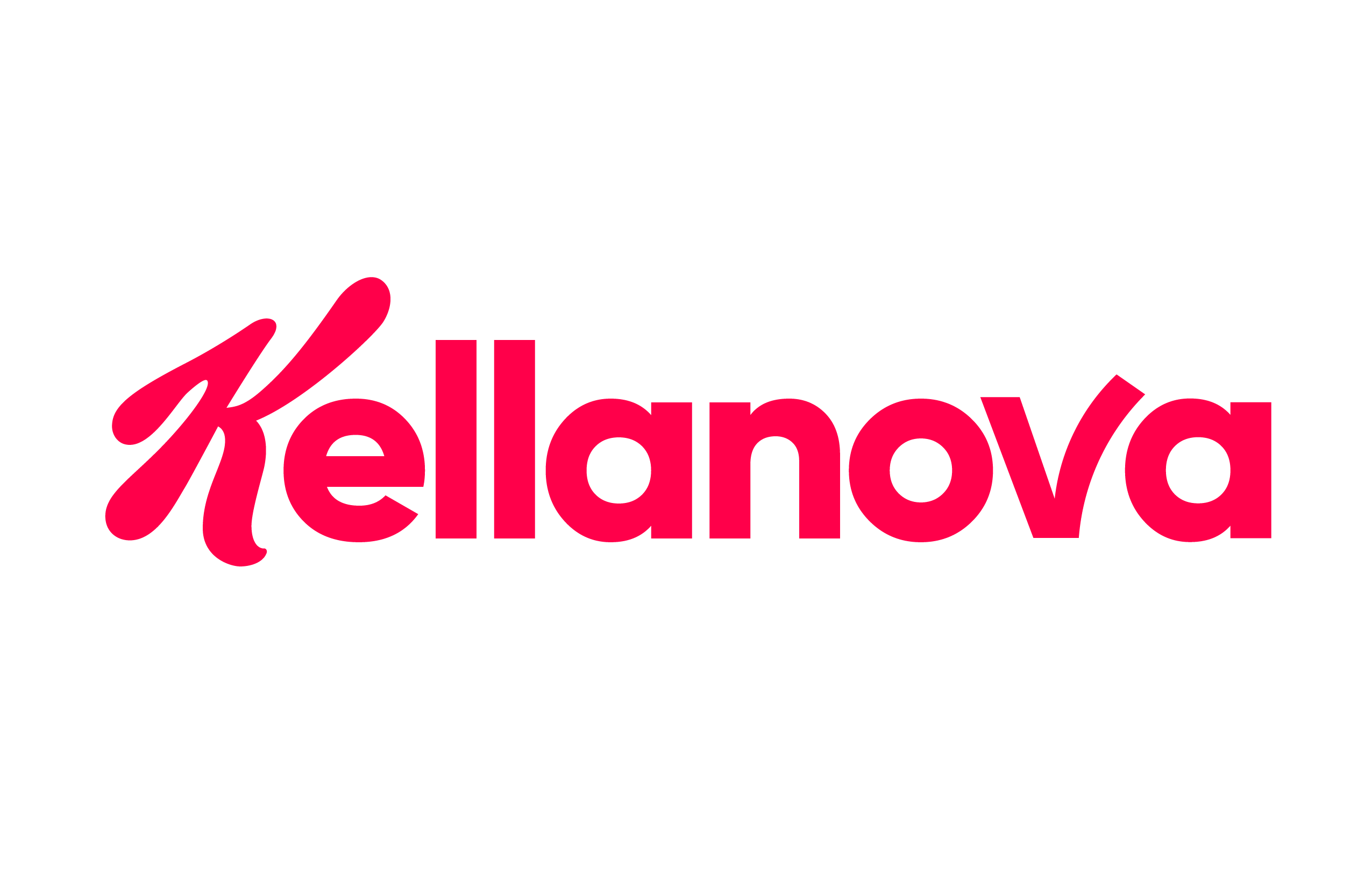General Mills monitors 175M acres of agricultural land and sets standard for emissions baselining
General Mills, a global leader in the CPG industry, has set strong climate commitments for this decade. The company has committed to advancing regenerative agriculture on one million acres of farmland and reducing absolute greenhouse gas emissions – more than half of which come from agriculture – across its value chain (scopes 1, 2 and 3) 30 percent by 2030.
As a leader, General Mills has an obligation to demonstrate the importance of climate action, help create a standardized pathway for others to reach climate commitments and pursue more resilient food systems globally.
Challenge
As part of this commitment, General Mills set out to monitor the adoption of regenerative agriculture at scale to set priorities and track progress towards these scope 3 emissions reductions goals.
Specifically, the company wanted to monitor 175M acres of agricultural land across the company’s global supply sheds.
As a global leader in corporate climate action, General Mills’ tracking efforts needed to be backed by industry-leading science and technology to ensure reliable outcomes and reporting, and to set a clear standard across the agriculture and food industries.
Partnership
General Mills selected Regrow’s Sustainability Insights platform to monitor and track adoption of regenerative agriculture practices. The two companies designed an industry standard approach using dynamic and location-specific emission factors, which are provided exclusively through Regrow technology.
At the foundation of Sustainability Insights are two industry-leading tools: Operational Tillage Information System (OpTIS) and DeNitrification-DeComposition (DNDC). OpTIS is a remote sensing technology that uses satellite imagery to monitor and verify regenerative agriculture techniques, such as tillage reduction and cover-crop adoption. The information from OpTIS is then fed to DNDC, which models nutrient cycling in the soil to estimate changes in net greenhouse gas emissions.
The platform was designed to monitor trends and estimate impacts where regenerative agriculture principles are being advanced on farmland.

Solution
General Mills successfully leveraged Sustainability Insights and is tracking practice adoption and emissions across 175M acres of land across the United States, Canada, Brazil and France.
Regrow’s dynamic monitoring and modeled outputs integrate seamlessly with General Mills’ existing regenerative agriculture and climate tracking systems. The collaboration also enables General Mills to update its key ingredient emission factors and deliver a more accurate emissions baseline for corporate reporting. Emission factors are updated annually and incorporate estimated changes in soil carbon due to changes in farm management techniques and land use.
The outcome is a Greenhouse Gas Protocol (GHG-P) compliant report covering all practices in General Mills’ definition of regenerative agriculture, at multiple levels of analysis. General Mills and Regrow detailed their joint approach to improving corporate climate inventories in a white paper with SustainCERT earlier this year, which set the standard for other leaders in this industry for scope 3 reporting.
Scaling Agriculture Resilience
“Monitoring the adoption of regenerative agriculture practices allows General Mills to make well-informed decisions about investing in regenerative programs, which can lead to increased resilience across our supply chain,”
said Jay Watson, Director of Regenerative Agriculture at General Mills.
Monitoring regenerative practices is an important part of a company’s sustainability journey. The partnership between General Mills and Regrow allows increased opportunities for emissions baselining, outcome calculation, and investment in new programs. Additionally, this partnership has led to other partnerships between Regrow and Google Earth Engine (which offered tools to monitor large amounts of agricultural land and process such data efficiently) and between General Mills, Regrow and Quantis (to integrate General Mills’ land-based emissions with emissions across the company’s supply chain and in non-agricultural sectors). These additional partnerships facilitate new opportunities across the industry, and set standardized methodologies for organizations working toward similar goals.
Together, General Mills and Regrow are able to assess progress toward General Mills’ climate goals, while advancing regenerative agriculture and setting new standards for the industry in scope 3 reporting.
Learn more about our partnership with General Mills and Quantis, and see what Sustainability Insights can do for your business.






